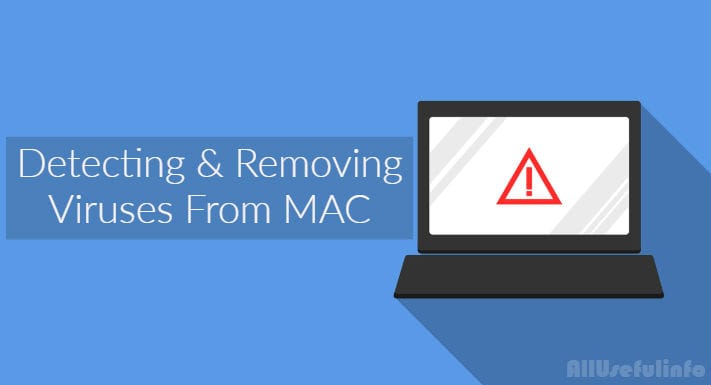
Are you having trouble choosing between antivirus and antimalware programs?
Online threats are as old as computers themselves, they are ever-evolving, and we need to deal with them to save our system from damage.
But, if you are new to these terms, it is not very easy to decide which one to use.
Let us help you to deal with these threats by clearing some air.
What is a Virus?
The term computer virus became popular in the 1990s. Viruses destroy the data on the host computer by replicating and damaging all files.
You can distinguish between viruses according to their behavior.
Direct Action Virus – This virus gets installed or stays hidden in computer memory. It sticks to the specific type of files that it infects. It does not affect the system’s performance or interfere with user experience.
Resident Virus – Resident viruses install themselves on the computer. It is difficult to identify the resident virus, and it is even challenging to remove a resident virus.
Polymorphic Virus – These types of viruses change their signature after replicating. Therefore traditional antivirus programs find it confusing to track them.
Since viruses came first, security system developers used the term antivirus to promote their product. With time new types of threats started emerging that were different than viruses. Good antivirus software can save you from these threats.
Soon cybercriminals understood damaging user’s data makes no profit. They started working on various types of programs by which they can make a profit using unethical ways.
It led to opening a space for malware.
What is Malware?
The term malware originated from combining the term “malicious software.” Therefore all kinds of malicious software programs such as viruses, worms are malware. But not all malware has to be viruses.
Whereas a virus is only capable of damaging a user’s data, malware can make a profit to its developer. This fact raised different kinds of malware programs in cyberspace.
Malware programs can steal your personal information like credit card details, passwords, and login information. Apart from that, they can spam you with unwanted advertisements to generate revenue. The malware works for its developers by generating money through multiple users.
Adware, PUP, Botnet, Spyware, Trojan, Dialers, and Rootkits are all different types of malware.
Ransomware is a new and widely spreading type of malware. Ransomware is capable of encrypting user’s data and systems to ask for a ransom amount for decryption. Since the algorithm for encrypting the files is hard to guess, it is nearly impossible to decrypt the data without the involvement of the cyber criminals. Many times using the wrong decryption algorithm can cause permanent data loss.
A prominent antimalware program like MalwareFox Antimalware can save you from such threats in real-time.
Antivirus vs. Antimalware
If you have already made definitions for antivirus and antimalware programs, think again.
As the new threats started to emerge, antivirus companies had to provide something extra. Therefore antivirus companies started to protect against malware too.
Antivirus programs can deal with almost every threat we have seen in the past. But they can never be 100% efficient.
Antivirus programs detect a threat using its signature. Therefore it can save you from threats spreading through conventional means like USB and email attachments. If malware is carrying a new signature, then most antivirus cannot detect it.
But like we said, malware programs are continually evolving.
An antimalware, on the other hand, doesn’t look for a threat’s signature. Instead, it uses behavior tracking algorithms to check if a program is malicious or not. Malware programs use a zero-day exploit, which means it does not show any suspicious behavior when it enters the system. But after a while, it can start damaging the files. Antimalware programs can track intrusive behavior, check if the threat is dangerous, and then eliminate it. Malware can attack your system by multiple means like direct messaging, browser extensions, and using PUAs, to name a few methods. Therefore for protection against new-coming threats, an antimalware app is a must.
Antivirus or Antimalware? What to Use?
The right answer to this question is both.
Yes, you might be thinking if antimalware can take care of known and unknown threats, then why to use an antivirus?
Antivirus programs are more effective and remove classic threats like worms, viruses, key loggers, and Trojan more effectively. On the other hand, the antimalware app can take care of new and advanced malware strains and establish security.
Some antimalware programs work proactively. It means, in case of a ransomware attack, they can work ahead of it by saving unencrypted files in real-time. It doesn’t mean that antivirus is worthless; it can’t fight against sophisticated forms of malware like antimalware does. For better protection, we suggest you use both antivirus and antimalware programs. This method is a Layered Security concept to obtain overall security toward cyber threats.
Is it okay to have two real-time protection programs running at the same time?
It is reasonable to think that two similar products may counter each other. Remarkably, this is not the case with antivirus and antimalware programs. An antimalware complements your antivirus and is an essential addition for maximum online safety.
Anything left by antivirus went through antimalware, thus protecting your PC from classic and advanced threats. Besides that, some antimalware programs like MalwareFox send the suspicious file to its cloud server for a fix. Therefore it has minimal impact on system performance and uses negligible resources.
Related: 20+ Malware-Infected Apps To Delete Right Now
Final Verdict
Online threats are evolving day by day; at the same time, old-school threats are also becoming more potent. Good antivirus terminates all the known threats from your system whereas good antimalware can take care of potentially dangerous files.
You can never be sure about total protection using single protection software. But you can make it hard for threats to survive by using both.
We also recommend you use optimal security measures to be on the safe side. Never click on unknown links in your email or don’t use some abandoned Pendrive on your device. Cybercriminals also use social engineering skills to trick the user into committing the desired task. Therefore, you should be aware and conscious while browsing the net.
Like the saying goes, “Better be safe than sorry”.
If you have any queries or want to share your thoughts, feel free to comment below.



